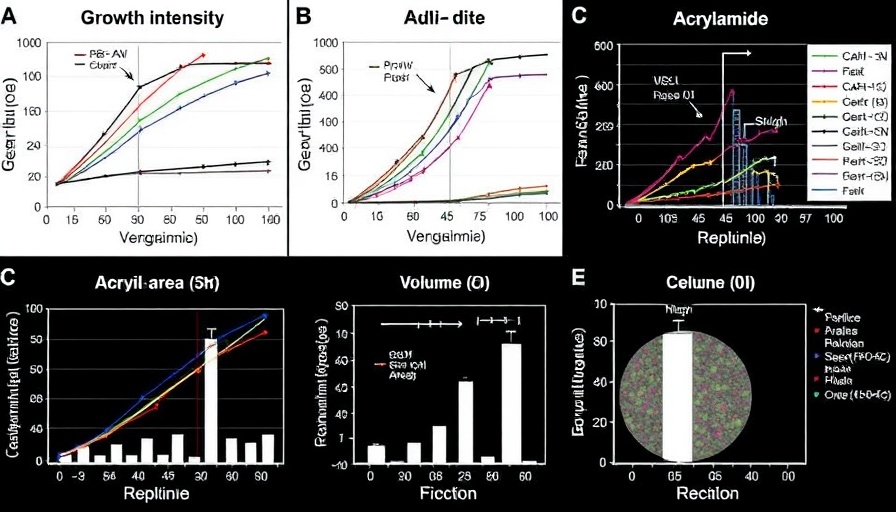
The Hidden Dangers of Acrylamide: Navigating Cellular Risks and Longevity
The presence of acrylamide (AA) in our diets is a ticking time bomb for our cellular health, especially for those of us keen on longevity and wellness. Commonly found in heat-processed carbohydrate-rich foods like bread and chips, as well as in coffee, acrylamide is categorized as a potential human carcinogen by various health organizations. Yet, many remain unaware of its implications on our cellular processes and overall healthspan.
Understanding the Cellular Impact of Acrylamide
A recent study indicates that acrylamide triggers oxidative stress within cells, leading to a cascade of disruptions in essential cellular functions. The study highlights the role of reactive oxygen species (ROS) that can damage essential macromolecules, promoting aging and a myriad of diseases. Our body's defenses include antioxidant enzymes that can help mitigate this damage, but their efficiency can be compromised by the constant presence of acrylamide.
This damage is not just theoretical—it can manifest in practical ways that affect our lifestyle and longevity. Disruption in cell cycle regulation due to acrylamide has been linked to abnormal expressions of key regulatory genes essential for healthy cell division. Specifically, the studies point towards errors in chromosome segregation and cell proliferation that could significantly impact our long-term health, aging, and disease prevention efforts.
TORC2 Signaling: The Overlooked Pathway
One fascinating finding highlights the role of the Target of Rapamycin Complex 2 (TORC2) as a significant player in mediating the body's stress responses to acrylamide exposure. While many focus on dietary factors impacting longevity, understanding acrylamide's effects on signaling pathways like TORC2 is crucial. This pathway influences cell growth, metabolism, and even responses to oxidative stress, presenting a neglected opportunity for effective biohacking and health optimization strategies.
The Complex Interaction of Diet and Cellular Health
In light of the complications associated with acrylamide, the conversation about healthy diet protocols becomes even more pertinent. While some might argue moderation in consumption, the potential long-term cellular repercussions suggest that a proactive approach is key. Adopting dietary practices that enhance antioxidant levels can be combined with regular supplementation aimed at mitigating oxidative stress.
Known biohacking strategies include increasing intake of polyphenol-rich foods or utilizing supplements that boost glucothione levels—both essential for combating oxidative damages precipitated by dietary choices. Furthermore, practicing mindfulness in food consumption, making conscious selections (like opting for less processed alternatives), can pave the way towards longevity and better health outcomes.
Future Predictions and Opportunities for Health Optimizers
With emerging research continuously shedding light on the intricacies of dietary impacts on cellular health, health-conscious individuals must stay informed and adaptable. Future dietary guidelines could incorporate deeper insights on acrylamide alongside other environmental toxins, emphasizing a preventive approach rather than reactive measures.
Furthermore, understanding the connections between acrylamide exposure and chronic health implications may lead to enhanced public health policies and consumer awareness campaigns. These initiatives could ultimately help society make informed decisions to foster long-term well-being and effective cellular health management.
Final Thoughts
As we delve deeper into the intersection of our diets and cellular processes, it becomes increasingly clear that knowledge and proactive measures can empower us to optimize our health and longevity. Lifelong learning about the biochemical consequences of our food choices is the key to enhancing our healthspan. Together, let's navigate this complex landscape with wisdom, armed with the science-backed strategies needed to thrive in today's environment.
 Add Row
Add Row  Add
Add 




Write A Comment